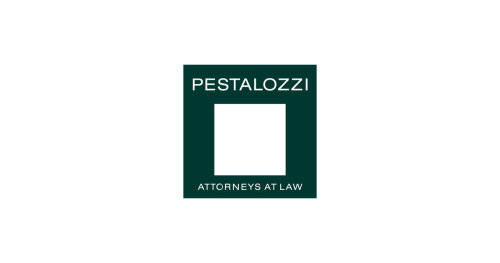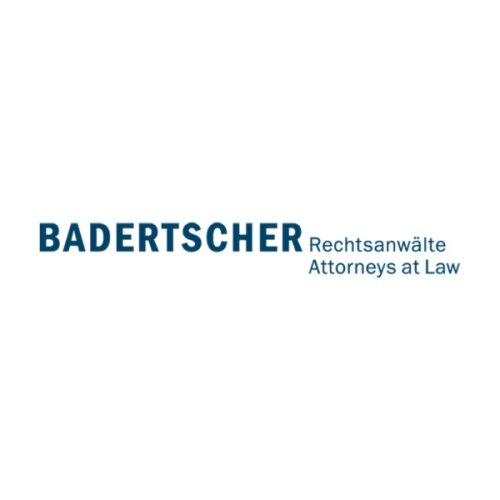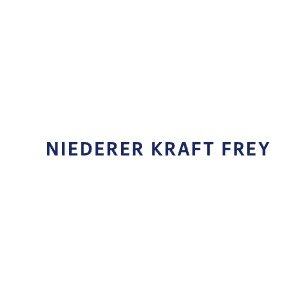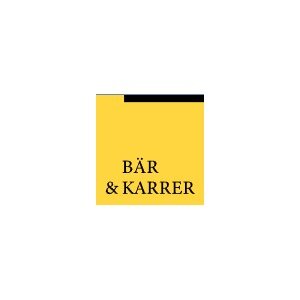Best Tax Increment Financing Lawyers in Zurich
Share your needs with us, get contacted by law firms.
Free. Takes 2 min.
List of the best lawyers in Zurich, Switzerland
About Tax Increment Financing Law in Zurich, Switzerland
Tax Increment Financing (TIF) is a funding mechanism primarily used for public infrastructure and development projects. In Zurich, Switzerland, TIF involves capturing future tax revenue increases resulting from an increase in property values and using this increment to finance current improvements. These projects usually support urban renewal, infrastructure enhancements, or other forms of community investments deemed necessary by local authorities. Given Switzerland's federal system, the application of TIF can vary between municipalities, and Zurich has crafted its own approach to managing and implementing these projects within the framework of Swiss law.
Why You May Need a Lawyer
Engaging in TIF projects in Zurich might require legal expertise in several instances. Developing a clear understanding of contractual obligations and tax implications is crucial for businesses, developers, or governmental entities involved. Lawyers can help navigate the complex regulatory environment, assist in negotiations, and provide representation in case of disputes. Additionally, legal guidance ensures compliance with local, cantonal, and federal laws, mitigating risks associated with non-compliance or misinterpretation of legal requirements.
Local Laws Overview
In Zurich, TIF laws are influenced by Swiss financial regulations and cantonal rules governing property taxation and urban development. Key aspects include authorization processes for initiating TIF areas, evaluation criteria for project approval, and specific compliance regulations. These frameworks aim to balance public benefit and property developers' interests. Additionally, Zurich has established measures to ensure transparency and accountability in the allocation and use of TIF-generated funds, requiring regular reporting and public consultations throughout the project cycle.
Frequently Asked Questions
What is the primary purpose of TIF in Zurich?
The primary purpose of TIF in Zurich is to stimulate urban development and improve public infrastructure by using future property tax increments to finance present-day improvements.
Who can initiate a TIF project?
TIF projects can be initiated by local government authorities in Zurich, sometimes in partnership with private developers or other stakeholders.
Are there limitations on how TIF funds can be used?
Yes, TIF funds in Zurich are typically designated for specific public improvement projects, such as infrastructure upgrades and urban renewal initiatives. Proper use is outlined in project agreements.
How are TIF districts determined?
TIF districts in Zurich are designated based on criteria such as potential for redevelopment, existing economic conditions, and projected tax increment potential. The designation involves a detailed planning and approval process.
What are the potential benefits of TIF for the community?
Benefits include urban renewal, increased property values, enhanced public infrastructure, and potential job creation, leading to broader economic benefits in the community.
How long do TIF districts typically last?
The duration of a TIF district in Zurich can vary but is generally established at the onset of the project, often spanning 15 to 30 years to align with expected economic benefits and funding cycles.
Can property owners in a TIF district object to its formation?
Yes, property owners can voice their concerns during public consultations and hearings, which are part of the TIF district establishment process in Zurich.
How is the success of a TIF project measured?
Success is gauged by achieving outlined redevelopment goals, such as increased property values, improved infrastructure, and enhanced economic activity, often assessed through regular reporting and impact assessments.
Are any tax incentives provided to developers participating in TIF?
Developers may receive indirect benefits from improved public infrastructure and property value appreciation rather than direct tax incentives per se in Zurich's TIF structure.
What happens at the end of a TIF project?
Once a TIF project concludes, the area ceases to be a TIF district, and the enhanced property tax revenues accrue to the regular tax coffers supporting broader community services.
Additional Resources
For individuals seeking more information or assistance regarding Tax Increment Financing in Zurich, the following resources may be helpful:
- The Zurich Department of Planning and Building is a practical starting point for insight into urban development initiatives. - The Swiss Financial Supervisory Authority (FINMA) can provide clarity on financial regulations. - Consulting firms specializing in urban development and financial consultancy can offer tailored advice. - Local chambers of commerce and business associations might have information on TIF projects and business implications.
Next Steps
If you require legal assistance with Tax Increment Financing in Zurich, the following steps may be beneficial:
1. Assess your specific needs and objectives related to TIF. 2. Consult with a legal professional specializing in Swiss financial and property law for personalized advice. 3. Gather relevant documentation related to your project or interest in TIF districts. 4. Engage with local governmental or municipal bodies for guidance on TIF application and regulations. 5. Explore networking opportunities through industry associations to learn from others with TIF experience in Zurich.
Lawzana helps you find the best lawyers and law firms in Zurich through a curated and pre-screened list of qualified legal professionals. Our platform offers rankings and detailed profiles of attorneys and law firms, allowing you to compare based on practice areas, including Tax Increment Financing, experience, and client feedback.
Each profile includes a description of the firm's areas of practice, client reviews, team members and partners, year of establishment, spoken languages, office locations, contact information, social media presence, and any published articles or resources. Most firms on our platform speak English and are experienced in both local and international legal matters.
Get a quote from top-rated law firms in Zurich, Switzerland — quickly, securely, and without unnecessary hassle.
Disclaimer:
The information provided on this page is for general informational purposes only and does not constitute legal advice. While we strive to ensure the accuracy and relevance of the content, legal information may change over time, and interpretations of the law can vary. You should always consult with a qualified legal professional for advice specific to your situation.
We disclaim all liability for actions taken or not taken based on the content of this page. If you believe any information is incorrect or outdated, please contact us, and we will review and update it where appropriate.

















